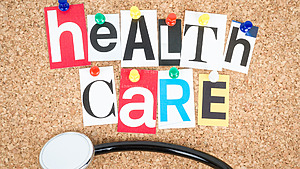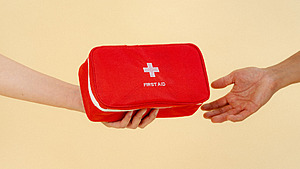Insight #6 Your Essential Guide to Health Insurance in Green Spain
Ready to make Northern Spain your new home? Navigating health insurance is key to ensuring you and your family have reliable medical support. Spain boasts an excellent healthcare system, with most residents qualifying for public coverage through Seguridad Social. If you don’t meet public healthcare requirements, private insurance offers a flexible alternative for comprehensive medical care.
This chapter covers everything you need to know, including:
- How to access the public healthcare system
- The Tarjeta Sanitaria (health card) and how to obtain one
- The Convenio Especial for those who do not qualify for free public healthcare
- Private health insurance options
- Pharmacies and how to access medications
- Urgencias (emergency care) for minor and major health issues
- Assigned hospitals and family doctors
- Healthcare for children in Spain
- Emergency numbers for Galicia and Asturias
1. Accessing the Public Healthcare System
Spain’s public healthcare system is universal and highly regarded, but access depends on your residency and employment status.
Who is eligible for public healthcare?
- Employees and self-employed individuals (autónomos): If you are working and paying into Spain’s Seguridad Social, you and your dependents qualify for free public healthcare.
- EU Citizens: You can use a European Health Insurance Card (EHIC) for temporary stays, but for long-term residency, you must register for the public system.
- Non-EU Citizens: You must obtain health insurance as part of your residency application. Depending on your visa type, you may qualify for public healthcare once you become a resident and contribute to the social security system.
- Retirees from the EU: Many EU retirees qualify for public healthcare through the S1 form, which transfers their healthcare rights from their home country.
- Legal Residents Without Employment: If you are not working but have been a legal resident for over a year, you may access the public system through the Convenio Especial (special agreement).
2. How to Get Public Health Insurance & The Tarjeta Sanitaria
Once you are eligible for public healthcare, you need to register with Seguridad Social and obtain your Tarjeta Sanitaria (health card).
Steps to register for public healthcare:
- Obtain a Social Security Number – If you are employed, your employer will do this. If you are self-employed (autónomo) or unemployed, visit the nearest Tesorería General de la Seguridad Social (TGSS) office.
- Register at your local Centro de Salud – Once you have your Número de Afiliación a la Seguridad Social, take it to your nearest Centro de Salud (health centre).
- Receive your Tarjeta Sanitaria – The Centro de Salud will issue your Tarjeta Sanitaria (health card), allowing you to access public healthcare.
Once registered, you will be assigned a Médico de Cabecera (general practitioner/family doctor), who will be your first point of contact for medical issues and referrals to specialists.
3. The Convenio Especial: Public Healthcare for Non-Contributors
If you are a long-term resident (over one year) but do not qualify for free public healthcare, you can join the Convenio Especial, a pay-in scheme that grants full access to the Spanish public healthcare system.
- Costs: Approximately €60/month for those under 65 and €157/month for those over 65.
- Coverage: Includes general healthcare but excludes prescriptions, which must be paid in full.
To apply, visit your local Instituto Nacional de la Seguridad Social (INSS) office.
4. Private Health Insurance
Many expats and residents opt for private health insurance either because they do not qualify for public healthcare or to reduce waiting times and access private hospitals.
When is private insurance required?
- If you are a non-EU citizen applying for a visa, private health insurance is mandatory.
- If you do not contribute to Seguridad Social and do not qualify for the Convenio Especial.
- If you prefer access to private hospitals, English-speaking doctors, and faster appointments.
There are various private health insurance options available, and choosing the right one can be overwhelming. If you’re considering private coverage, Innoinsure is a trusted broker that can help you compare policies tailored to expat needs.
5. Healthcare for Children in Spain
Children in Spain have access to free public healthcare if at least one parent is registered with Seguridad Social.
- Assigned Paediatricians: Once registered, children are assigned a paediatrician at the local Centro de Salud. Regular check-ups, vaccinations, and common illnesses are covered.
- Vaccination Schedule: Spain follows an official childhood vaccination schedule. Vaccines are free in the public system, though some additional optional vaccines may only be available privately.
- Specialist Care: If a child needs specialist care, the paediatrician will refer them to a hospital. Wait times vary, so some parents opt for private insurance to access faster appointments.
- Dental Care: Unlike general healthcare, dental care is not fully covered by the public system. Children receive basic dental services for free (such as check-ups and extractions), but orthodontics and complex treatments are typically private.
For families who prefer private healthcare, some providers offer family plans that cover both parents and children with access to paediatric specialists, private hospitals, and additional dental care.
6. Pharmacies & Access to Medications
Pharmacies (farmacias) are the main place to purchase medications in Spain. They are easy to find (marked with a green cross) and offer both prescription and over-the-counter medicines.
- Prescription Medications: If you are registered in the public system, your doctor will prescribe medications, and you will pay a co-payment based on income (ranging from 10%–50% of the cost).
- Private Insurance Prescriptions: Private insurance may cover medications, but you often need to pay upfront and claim reimbursement.
- 24-hour Pharmacies: In every town and city, at least one pharmacy is open 24/7. A list of 24-hour pharmacies (farmacias de guardia) is displayed at all pharmacy doors. You can also search online for farmacias de guardia in your area.
7.Emergency Numbers for Galicia & Asturias
It is essential to know emergency numbers in case of urgent situations:
- 112 – General emergency (police, fire, ambulance)
- 061 – Direct medical emergencies
- 062 – Guardia Civil (rural police)
- 091 – National Police
- 092 – Local Police
If you live in a rural area, it is useful to ask your Centro de Salud about the nearest 24-hour emergency service.
Final Thoughts
Understanding your healthcare options in Northern Spain is key to a smooth relocation. Whether you qualify for public healthcare, need to pay into the Convenio Especial, require or prefer private health insurance, having a clear plan will give you peace of mind in case of medical needs. If you’re looking for tailored private health insurance options, Innoinsure can help you find the right coverage for you and your family.
_____________________________________________________________________________________
For any questions about health insurance https://www.innoinsure.com/innoinsure/expat-insuranceand relocating to Green Spain, our team is here to help you every step of the way—just get in touch!
Your Galicia & Green Spain Property & Relocation Team:
Southern Galicia
Caroline Harris @ caroline@galiciagreenspainproperty.com
Lucie Prokopova @ lucie@galiciagreenspainproperty.com
Northern Galicia
Estefania Rua @ estefania@galiciagreenspainproperty.com
Asturias
Donna Gonzalez-Linnitt @ donna@galiciagreenspainproperty.com






